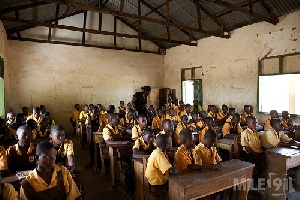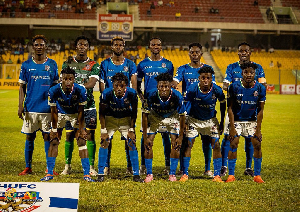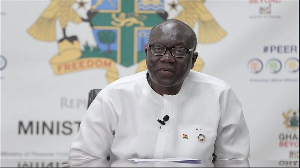The National Road Safety Commission (NRSC) in collaboration with the Ghana Education Service has developed a road safety textbooks and manual to be integrated into the basic school education curricula.
The manual, which would be integrated at the primary and Junior High School level, is being reviewed by stakeholders before it is rolled-out across the country.
Mr Kwame Kodua Atuahene, the Head of Communications, NRSC, said this on Thursday at a road safety campaign at the Anyalolo Cluster of Schools in Accra, organised by Amend Ghana, an NGO in road safety.
The event was supported by FIA Foundation, and Puma Energy Foundation.
Mr Atuahene explained that the integration would help instil positive road user attitude into school children.
He said teachers and other stakeholders were exposed to contents in the manuals.
Mr Atuahene explained that six per cent of all deaths through pedestrian crossing occurred among children of less than ten years, because they were ignorant of road traffic regulations.
He was optimistic that with the introduction of the road safety education concept in the schools, it would expose the students to basic knowledge in road safety.
Mr Atuahene observed that the concept would have positive impact on pupils when teachers showed keen interest.
He pointed out that road safety education was a shared and collective responsibility of all and sundry, including children, who had a role to play.
Mrs Ayikai Poswayo, the Programme Director, Amend Ghana, said the organisation developed implements and evaluated evidence-based programmes to reduce the incidence of road traffic injury in the sub-Saharan Africa.
She said a child pedestrian was among the highest-risk groups in the country for road traffic injury, adding that majority of school children in urban parts walk to school and were usually unaccompanied by an adult.
Mrs Poswayo stated that a child in Africa was twice as likely to die on the roads as a child in any other region of the world.
She said her outfit since 2016 had been working to reduce vehicle speeds and provide safe pedestrian infrastructure such as footpaths, zebra crossings, speed humps, and road signs around primary schools in Accra.
She said Amend Ghana had worked in over 30 schools and was currently working to advocate the adoption of 30km/h speed limits around schools throughout the country.
Mr Yahaya Yunusa, the Managing Director of Puma Energy Ghana, said they were taken aback by the alarming rate of road traffic deaths, adding that the first quarter of 2018, 336 deaths and 2095 road accidents were recorded.
He urged all and sundry to support children to cross the road to avoid any crashes, since road safety was a collective responsibility.
Mr Eugene Laryea, the Headmaster of Ashia Mills Basic School, urged the students to be agents of change in their communities and apply what they have been taught to help them to be free from any road accidents.
General News of Friday, 6 July 2018
Source: ghananewsagency.org













